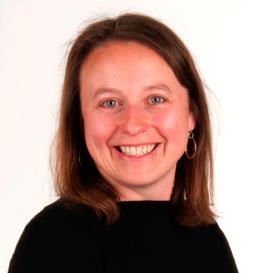
| Title: | Associate research professor (accredited) Département de médecine et spécialités médicales |
| Address: | Centre de recherche – Hôpital Maisonneuve-Rosemont 5415, Boul. de l’Assomption Montréal (Québec) H1T 2M4 |
| Room: | Laboratory 32, Room GBSS124 |
| Phone: | Office: 514 252-3400, ext. 4827 Lab: 514 252-3400, ext. 4358 |
| Fax: | 514 253-7626 |
| Email: | heather.melichar@umontreal.ca |
| Web site: | https://sites.google.com/site/laboratoiremelichar/ |
Biography
Dr. Melichar pursued her doctoral studies in the lab of Dr. Joonsoo Kang at the University of Massachusetts Medical School focusing on the molecular mechanisms influencing T cell fate decisions. She then moved to the west coast and began a postdoctoral fellowship at the University of California, Berkeley, with Dr. Ellen Robey where she developed novel platforms to study the development of both murine and human T cells in situ. In 2014, Dr. Melichar established her independent research group in Montreal. As an FRQS Junior 1 and CIHR New Investigator award recipient, Dr. Melichar is currently a researcher at the Maisonneuve-Rosemont Hospital Research Center and Assistant Professor in the Department of Medicine at the University of Montreal. Her laboratory is interested in the cellular and molecular mechanisms that regulate the development and function of T cells and uses insights from these studies to improve the efficacy of cellular therapies.
Team
- Ève Mallet Gauthier – Étudiante à la maîtrise
- Stefanie Valbon Fernandes Garcia, M.Sc. – Étudiante au doctorat
- Sébastien This, Ph.D. – Stagiaire postdoctoral (co-direction avec S. Costantino)
- Marion Dubuissez, Ph.D. – Stagiaire postdoctoral (co-direction avec F. Mallette)
- Mathieu Neault, Ph.D. – Stagiaire postdoctoral (co-direction avec F. Mallette)
- Marilaine Fournier, Ph.D. – Assistante de recherche
- Marie-Ève Lebel, Ph.D. – Associée de recherche
Theme
- Immunology
Research topics
The goal of our lab is to understand the fundamental processes of T cell development and function. We approach this problem from a cellular perspective, by studying how T cells communicate with support cells in the thymic microenvironment throughout their development and with target cells during an immune response. For this work, we make use of a variety of techniques that allow us to maintain, manipulate, and probe the intact 3-dimensional space of the thymus, including multiparametric flow cytometry, two-photon microscopy of live tissue, mouse and human organotypic culture, and genetically engineered mouse models. We are currently:
- Examining how the T cell receptor signal threshold between positive and negative selection of thymocytes changes throughout ontogeny. How do these differences in thymic selection in neonates and adults impact T cell effector function in the peripheral lymphoid organs?
- Studying how self-antigen, when presented by different medullary thymic epithelial cell (mTEC) subsets, affects negative selection. In particular, we are examining how this impacts thymocyte:mTEC interactions and developmental outcome.
- Investigating the role of a novel protein:protein interaction between T cells and tumor cells in suppressing tumor-specific T cell function. We are further characterizing the interaction, the mechanism of action, and potential as a therapeutic target to treat cancer.
Publications
- Sood A, Lebel MÈ, Dong M, Fournier M, Vobecky SJ, Haddad É, Delisle JS, Mandl JN, Vrisekoop N, Melichar H.J. CD5 levels define functionally heterogeneous populations of naïve human CD4+ T cells. Eur J Immunol. 2021 Jun;51(6):1365-1376.
- Lebel MÈ, Coutelier M, Galipeau M, Kleinman CL, Moon JJ, Melichar H.J. Differential expression of tissue-restricted antigens among mTEC is associated with distinct autoreactive T cell fates. Nat Commun. 2020 Jul 24;11(1):3734.
- Dong, M., Artusa, P., Kelly, S.A., Fournier, M., Baldwin, T.A., Mandl, J.N., and Melichar, H.J. (2017) Alterations in the thymic selection threshold skew the self-reactivity of the T cell receptor repertoire in neonates. The Journal of Immunology, 199, 965-973.
- Melichar, H.J.*, Ross, J.O.*, Herzmark, P., Hogquist, K.A., and Robey, E.A. (2013) Distinct temporal patterns of T cell receptor signaling during positive versus negative selection in situ. Science Signaling, 6, ra92.
- Melichar, H.J., Narayan, K., Der, S., Hiraoka, Y., Gardiol, N., Jeannet, G., Held, W., Chambers, C., and Kang, J. (2007) Regulation of gammadelta versus alphabeta T lymphocyte differentiation by the transcription factor SOX13. Science, 315, 230-233.
